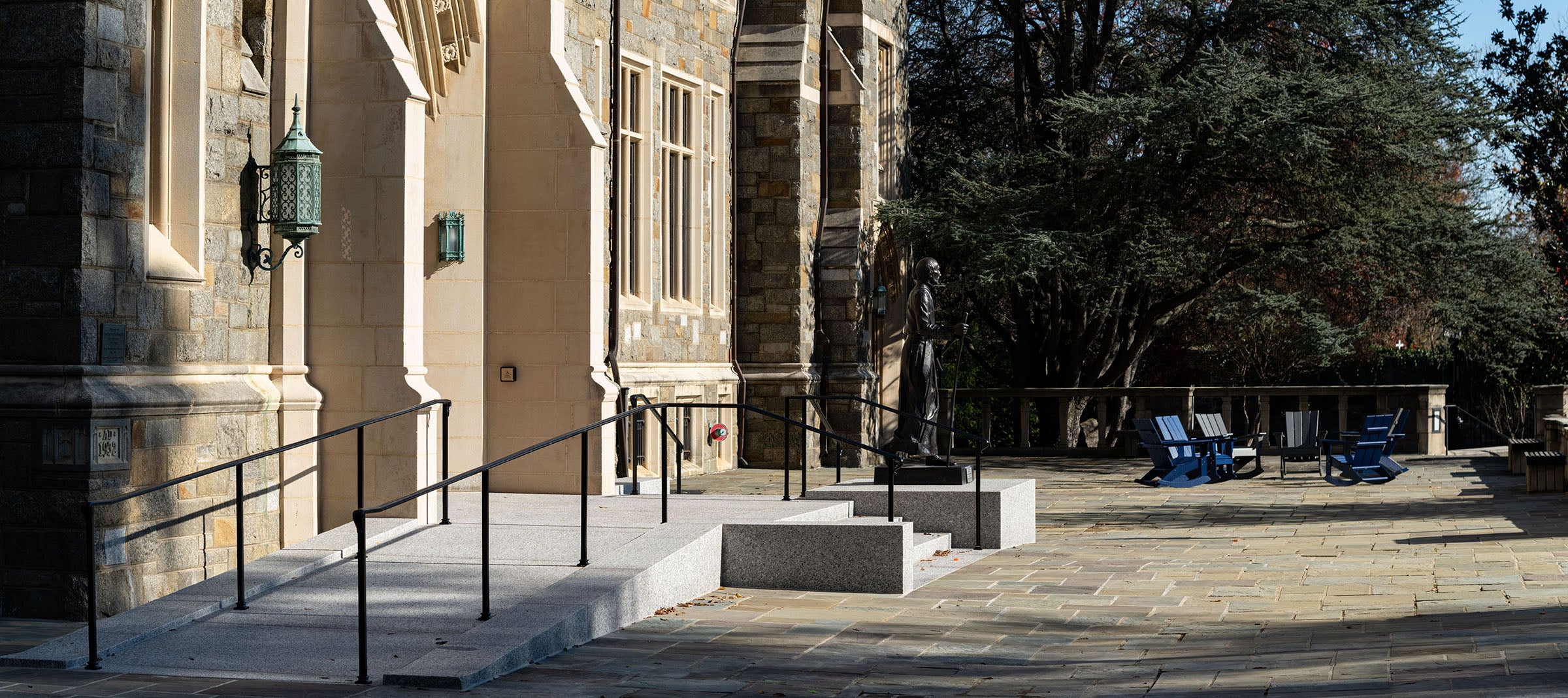Physical Accessibility

Part of being an inclusive community is making our campuses and indoor and outdoor spaces accessible to students, faculty, staff, and others who have disabilities so they can participate fully in university activities and events. Physical accessibility involves careful consideration of the needs of individuals with disabilities when getting to, entering and exiting and using our buildings, facilities and physical spaces.
The Office of Planning and Facilities Management works to ensure that planning for, and execution of, campus construction projects and capital improvements include accessibility considerations. It also works to maintain and improve accessibility features of existing buildings and campus space, and remediate and repair conditions that create physical barriers to accessibility.
If you encounter a physical barrier to accessibility in a non-emergency situation, such as a non-functioning elevator or door, a blocked entryway, or other problem, please submit a service request. You can follow up on your service ticket by emailing workmanagementcenter@georgetown.edu . For other facilities-related inquiries, email facilitiesplanning@georgetown.edu .
Emergency Assistance
If you are experiencing an emergency or need immediate assistance because of a condition that threatens your safety:
- On the Main or Medical Center campuses, contact GUPD at 202-687-4343, use the LiveSafe App or call 911.
- At the Law Center, contact the 24-hour emergency assistance line at 202-662-9325 or call 911.
- At SCS, contact the Security Desk at 202-784-7375 or call 911.
Essential Tips
- Ask Before Aiding: It’s great to support a disabled person navigating campus, but make sure they want help before touching them or their mobility devices. Otherwise, you might inadvertently hurt them. Many disabled people consider their mobility devices part of their body, so don’t lean on, push, or play with someone’s wheelchair, mobility scooter, or cane without consent.
- Don’t Slam the Door Openers: ADA push buttons and sensors wear out easily when they are overused or slammed repeatedly. If you need the button, use it! If not, leave it for folks who use the button to enter and exit buildings. Together we can help preserve the longevity of ADA push buttons for those who need them.
- Use Scooter Etiquette: After using a Bird, Jump, Lime, Lyft or other rented scooter or bike, make sure to leave it out of the pathway so you are not inadvertently blocking an accessible route. Our disabled community members rely on clear pathways to navigate campus, and we want to keep pathways free of any additional barriers.
- Don’t Block Curb Cuts: Curb cuts (dips in the curb that allow access to cross the street) are crucial to accessibility. When curb cuts are blocked by a car, scooter, bike or other impediment, it prevents disabled community members from accessing our campus. Help to keep the curb cut clear.
- Be Aware and Share: Write an accessibility statement for your event, meeting and syllabus in advance, and consider the physical access needs of participants. Discovering that they can’t access an event or meeting only after they arrive further isolates disabled people in our community. Plan for accessibility and share the accessibility statement ahead of time to include our disabled community members.
